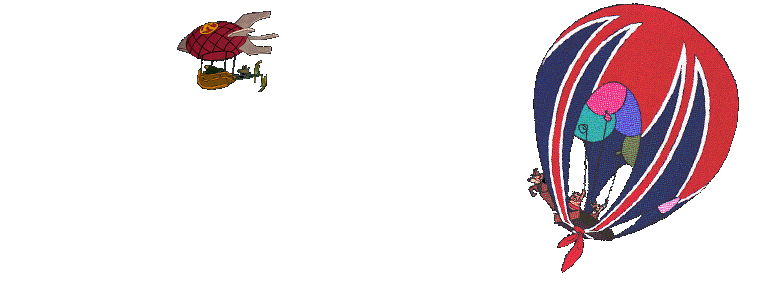
 |
Eve
Titus' Obituary
Written by Ginny and Harvey Saltman
Posted in the Basil of Baker Street Forum, 06 February 2002
[A note to Basilians:] I am Ginny, the niece of Eve Titus, and have been reading your website. I have sad news, my Aunt Eve passed away on Monday the 4th of February 2002. I have attached an obituary that my husband Harvey wrote in her honour.Her sister Ruth, brothers Jack and Robert are still alive and are happy that there are so many people out there that will remember her.
Sincerely,
Ginny Saltman
Eve Titus, well-known children's writer and "Master of Mouseology," died February 4, 2002 at Orlando, Florida. From Miss Titus' fertile imagination came Anatole, a French mouse whose adventures continued through ten published books with many foreign editions. Her inspiration was a need to work and a desire to provide a fatherly role model for son, Richard; Anatole joined other mouse husbands when "every evening as the sky darkened, husbands and fathers bicycled along the boulevard toward Paris to find food for their families." Indeed, Anatole put ample cheese on the table for his mouse family: His wife Doucette, and their six charming children — Paul and Paulette, Claude and Claudette, Georges and Georgette; in turn, the Anatole books furnished bread and butter for Eve Titus and her son.Among her creations are a number of books featuring a mouse, Basil of Baker Street, who lived in the actual London basement of the home of the great Sherlock Holmes. Disney's film, The Great Mouse Detective, is taken from this work. Miss Titus' masterful portrayal of a Sherlockian rodent gave her esteemed status among other professional mystery writers, and she is well known to devotees of Sherlock Holmes the world over. Through her books, she became a great friend and correspondent of the Conan Doyles. Whenever she spoke about writing, she gave credit to son, Richard, for guiding story development through the probing questions he asked as a child. Many of Titus' mouse stories are considered to be contemporary classics.
For the Anatole and Basil books, she was teamed with the artist Paul Galdone by their publisher, McGraw Hill; the two worked well together. Eve felt that Galdone's work dutifully supported her own vision of each story which she would carefully describe to Galdone as scenes in a play. Miss Titus worked closely with other artists after Paul Galdone died, and continued to achieve critical acclaim for the charm of her stories and the notable unity and coherency of the words and pictures.
As a well-known professional, she conducted countless interviews, seminars and workshops for aspiring writers, and was seen as one who took infinite pleasure in words and the art of combining them perfectly. As an accomplished pianist, she found writing and music to be complementary arts, and believed that musicianship contributed to writing success; she took care to create and control a proper rhythm for each of her stories, and the words did flow beautifully. Her books are in great favour with parents, teachers, and librarians who have discovered the many delights which Eve wove into her writing for the special enjoyment of adults.
She credited her brilliance to the cultural advantages she had as a child growing up in a large family in Brooklyn, New York: "My mother was artistically inclined and my father wrote so beautifully that his letters read like verse." She was the oldest of five, three boys, and two girls, all bonded by a love of jokes and stories.
Miss Titus brought others around her into her busy writer's world of visualising, plotting, probing, unsnagging snags, changing words, and changing them back again, wherever she was and whatever else was going on. She wrote, travelled, lectured, and published through her seventies and eighties, driven by an undiminished flow of ideas; she continued to be a world traveller and survivor of many gruelling bus and train journeys. By the age of ninety, she was legally blind, but wrote that as long as she could still make out objects as large as cars, she was ready to travel to meet with people. In her blindness, she continued to work with the help of student assistants, and struggled to keep whole books in her head in order to edit and revise them; her heroic efforts to complete a last book are aptly conveyed in the title of the yet-to-be published work: Anatole and The Cheese Olympics.
"In all France, there was no happier, more contented mouse than Anatole," and Eve Titus was his "ghost writer." She wryly explained this at her seminars: The mice in her life perched on her writer's desk and simply dictated their stories to her. She would claim that her characters were completely beyond her control; she "gave them ingenuity and cleverness ten times greater than her own," and her job, after that, was simply to write everything down! For 45 years, Eve Titus was marvellously devoted to her fictional characters and to recording their adventures in her latest books. We shall miss Eve as we go on enjoying her "mousterpieces."